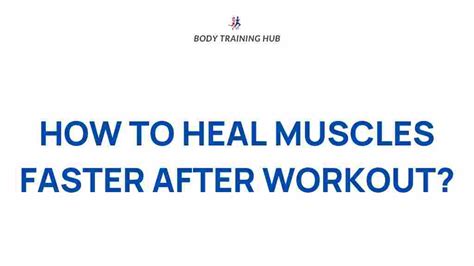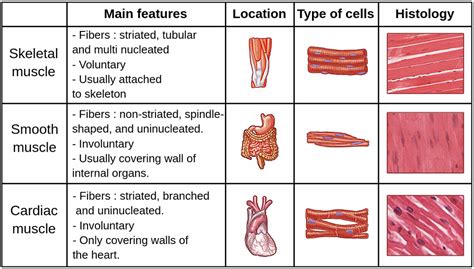Optimize post-workout recovery to prevent injury & accelerate muscle repair for peak gains?

Why Post-Workout Recovery is Non-Negotiable for Peak Performance
In the relentless pursuit of strength, endurance, and muscle growth, many fitness enthusiasts focus intensely on their training sessions but often overlook a critical component: post-workout recovery. Recovery isn’t just about resting; it’s an active, strategic process that allows your body to repair, adapt, and grow stronger. Neglecting proper recovery can lead to stalled progress, chronic fatigue, increased risk of injury, and even overtraining syndrome. To truly unlock peak gains and sustain long-term fitness, optimizing your recovery protocols is just as vital as the effort you put into your workouts.
The Pillars of Effective Post-Workout Recovery
True recovery encompasses several interconnected strategies, each playing a crucial role in rejuvenating your body and preparing it for the next challenge. Integrating these pillars into your routine will significantly impact your ability to prevent injury and accelerate muscle repair.
1. Prioritize Nutrition: Fuel Your Repair
What you consume after a workout is perhaps the most immediate and impactful aspect of recovery. Your body needs specific nutrients to replenish energy stores and kickstart the repair process.
- Protein: Essential for muscle protein synthesis (MPS). Consuming 20-40g of high-quality protein (e.g., whey, casein, lean meats, plant-based proteins) within 1-2 hours post-workout provides the amino acids necessary to repair damaged muscle fibers and build new ones.
- Carbohydrates: Replenish glycogen stores, which are depleted during intense exercise. Aim for a 2:1 or 3:1 carb-to-protein ratio. Complex carbohydrates like whole grains, fruits, and vegetables are ideal.
- Hydration: Rehydrate by replacing fluids and electrolytes lost through sweat. Water is crucial, but electrolyte-rich beverages can be beneficial after particularly intense or prolonged sessions.

2. Embrace Quality Sleep: The Ultimate Regenerator
Sleep is when your body does most of its repair work. During deep sleep, your body releases growth hormone, which is vital for muscle repair and growth. Aim for 7-9 hours of quality, uninterrupted sleep per night. Poor sleep can impair recovery, reduce performance, and increase cortisol levels, which can hinder muscle growth.

3. Active Recovery & Mobility: Keep Moving Smartly
While rest is important, complete inactivity isn’t always the best approach. Light active recovery (e.g., walking, cycling, swimming) can increase blood flow to muscles, helping to flush out metabolic waste products and deliver fresh nutrients. Incorporating stretching, foam rolling, and mobility work helps maintain range of motion, reduce muscle soreness, and prevent stiffness, thereby reducing injury risk.

4. Hydration & Supplementation: The Supporting Cast
Beyond immediate post-workout rehydration, maintaining consistent hydration throughout the day is fundamental for all bodily functions, including nutrient transport and waste removal. While whole foods should form the basis of your nutrition, certain supplements can support recovery. Creatine, BCAAs (Branched-Chain Amino Acids), and Omega-3 fatty acids are common choices, but always consult with a professional before adding supplements to your regimen.
5. Listen to Your Body & Manage Stress
Overtraining is a real concern. Pay attention to persistent soreness, fatigue, irritability, or decreased performance. These are signs your body needs more rest. Additionally, chronic stress can elevate cortisol, hindering recovery and promoting muscle breakdown. Incorporate stress-reducing activities like meditation, yoga, or hobbies into your routine.
The Direct Link to Injury Prevention
Proper recovery is your strongest defense against injury. When your muscles are adequately repaired, your nervous system is recharged, and your energy stores are full, you reduce the risk of:
- Overtraining: Pushing your body too hard without sufficient recovery leads to breakdown, not buildup.
- Muscle Strains and Tears: Fatigued muscles are weaker and more susceptible to injury.
- Joint Pain: Poor recovery can place undue stress on joints as compensatory movements become more common.
- Reduced Coordination: A fatigued central nervous system can impair motor control, increasing the likelihood of accidents.

Accelerating Muscle Repair and Gains
The magic of muscle growth (hypertrophy) doesn’t happen during your workout; it happens during recovery. Workouts create microscopic tears in muscle fibers, a process known as muscle damage. It’s during recovery that your body repairs these tears, making the fibers stronger and slightly larger to adapt to the stress. Optimized recovery protocols:
- Enhance Protein Synthesis: Providing the right nutrients post-workout ensures your body has the building blocks for repair.
- Boost Hormonal Balance: Quality sleep and stress management support the release of growth-promoting hormones and keep catabolic hormones in check.
- Reduce Inflammation: While some inflammation is normal, controlled active recovery and proper nutrition can help manage excessive inflammation that could hinder repair.
- Improve Performance: Fully recovered muscles can perform better in subsequent sessions, allowing for greater training volume and intensity over time, which directly translates to more significant gains.

Conclusion: Make Recovery Your Priority
Treating recovery as an integral part of your training regimen, rather than an afterthought, is the key to unlocking your full athletic potential. By consciously prioritizing nutrition, sleep, active recovery, and listening to your body, you empower yourself to train harder, prevent injuries, accelerate muscle repair, and ultimately achieve the peak gains you’ve been striving for. Invest in your recovery, and watch your performance soar.







